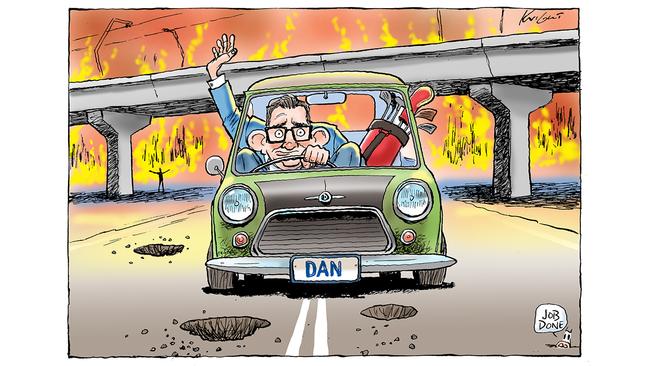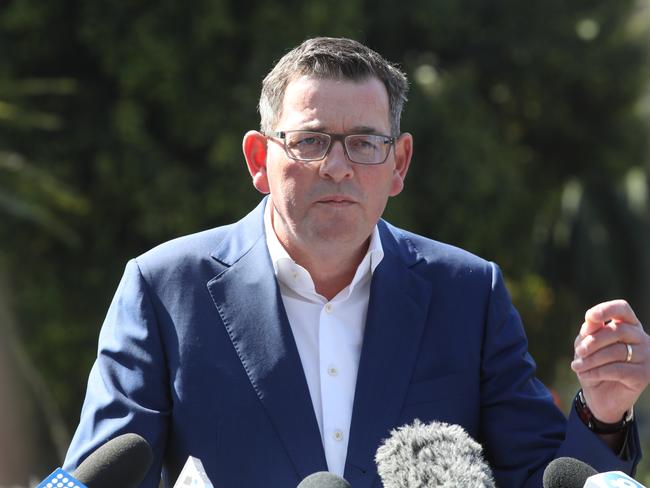Daniel Andrews’ resignation comes ahead of release of public service, firefighters investigations
The exit of Daniel Andrews comes ahead of a Victorian Ombudsman investigation into the politicisation of the public service and an IBAC probe into the amalgamation of the state’s fire services.
Victoria
Don't miss out on the headlines from Victoria. Followed categories will be added to My News.
Daniel Andrews’ resignation comes before the findings of numerous outstanding corruption probes have been made public.
One key probe, on track to be delivered this year, is an Ombudsman’s investigation into the politicisation of the public service under his watch.
Sources familiar with the investigation said it was likely it could be handed down as early as November.
Mr Andrews was said to be key to the inquiry, but it is not clear whether he was questioned over concerns non-political positions were stacked with Labor activists.

Findings from a corruption probe into the amalgamation of the Metropolitan Fire Brigade and Country Fire Authority into Fire Services Victoria is also outstanding.
Dubbed Operation Richmond it has been one of the most secretive operations in the history of IBAC and has involved scores of witnesses being called before secret hearings.
It is understood it began after a complaint was lodged with the Independent Broad-based Anti-corruption Commission over government dealings with the militant firefighters union.
Conversations with members of the government, and its support for the ALP forms part of the intercepted material, are understood to have been key to the probe.
Senior government MPs including Daniel Andrews emerged as figures of interest during the investigation.
But publication of its findings have been hobbled by ongoing court action in a bid to keep the report secret.
The inquiries are among several to have personally involved the outgoing Premier in recent years.
It included Operation Watts, an IBAC investigation which investigated whether political staffers, including MPs, engaged in misconduct while working in public office to direct ministerial and electorate office staff to perform party political work while on the taxpayer dime.

Former powerbroker Adem Somyurek was at the centre of the saga, but Mr Andrews was also quizzed.
The Premier later said IBAC uncovered “absolutely disgraceful behaviour”.
Another IBAC probe, Operation Sandon, looked at developer John Woodman’s influence over planning decisions through payments and donations.
Operation Daintree, handed down in April, investigated a $1.2m grant provided to the Labor-affiliated Health Workers Union ahead of the 2018 state election.
While it stopped short of finding corrupt conduct, it found “ample evidence of the misuse of power and influence by ministerial advisers and departmental executives who breached codes of conduct and established conventions”.
“The pursuit by advisers of the perceived interests of their ministers, including the Premier, at the expense of proper process and standards is another example of the phenomenon of grey corruption that is of increasing concern to integrity bodies around Australia,” the report found.
“Grey corruption involves the bending or breaking of rules, even if that might not amount to criminal behaviour, but that unfairly favours the allies, friends and networks of decision makers.
“It corrodes standards of public governance, decision-making in the public interest and trust in government, and if left unchecked increases the risk of corrupt criminal offending.”
Former IBAC commissioner Robert Redlich warned before leaving the role in December that the watchdog was powerless to do anything about grey corruption because of current legislation.
Mr Redlich said there had been a “material decline in the standards of integrity” that had led to a “loss of public confidence in ministers, their advisers, and public service”.
Originally published as Daniel Andrews’ resignation comes ahead of release of public service, firefighters investigations



